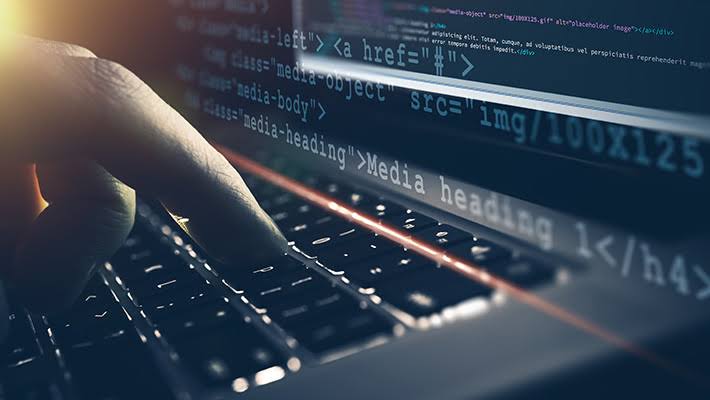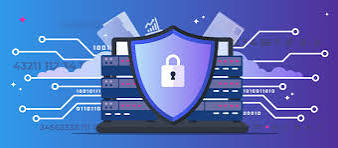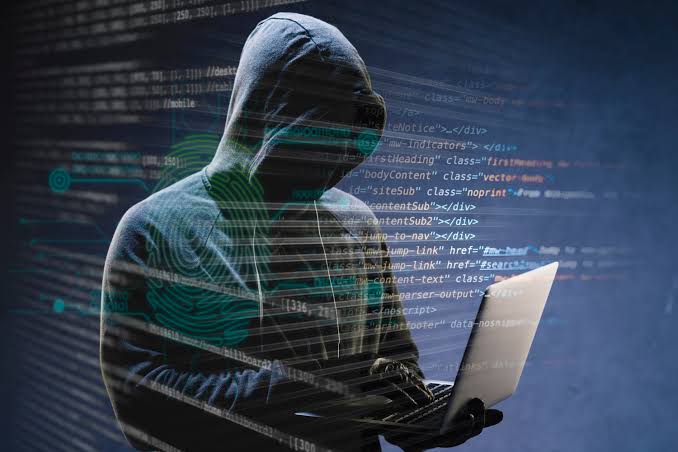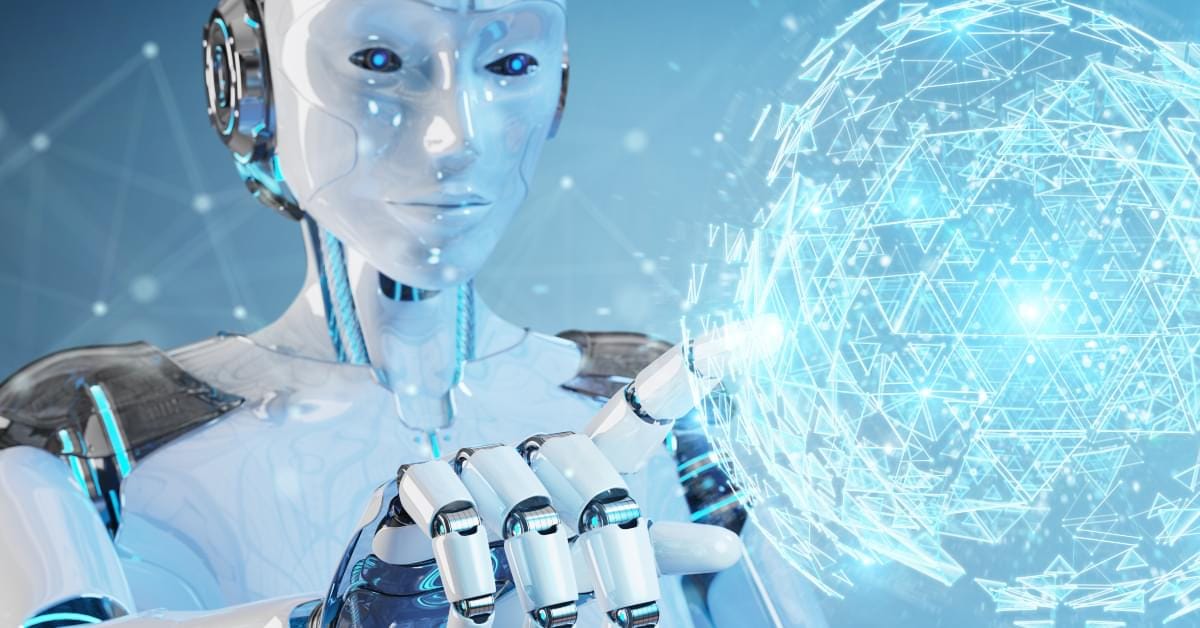
The Future of Cybersecurity: AI, Data Privacy, and Global Crime Prevention
The future of cybersecurity is being reshaped by AI, data privacy demands, and the global fight against cybercrime. AI strengthens defenses but also empowers attackers, making advanced strategies crucial. Data privacy laws safeguard individuals, while global cooperation helps combat cross-border threats. Zero Trust, encryption, and stronger regulations are becoming standard.
✨ Raghav Jain

Introduction
In today’s hyperconnected world, cybersecurity is no longer just a technical concern—it’s a global necessity. From protecting personal data to securing international financial systems, cybersecurity is shaping the future of digital trust. With cybercrimes evolving at lightning speed, traditional defense methods alone are no longer enough. Artificial Intelligence (AI), stronger data privacy measures, and global crime prevention strategies are now at the core of this battle.
As technology advances, so do cybercriminals. Hackers exploit weak systems, phishing scams trick millions, and global ransomware attacks threaten entire economies. But the future of cybersecurity offers hope: AI-driven defenses, stricter privacy laws, and global cooperation are setting the foundation for safer digital spaces.
This article explores how AI, data privacy, and global crime prevention are transforming the landscape of cybersecurity and what daily steps individuals and organizations can take to stay protected. Cybersecurity has become one of the most critical challenges of our time. With the world relying more on digital infrastructure, online communication, and data-driven innovation, the risks of cyberattacks, breaches, and digital crimes have grown at an alarming pace. The future of cybersecurity will not only determine how safe individuals and organizations are online but will also shape the stability of global economies, governments, and international relations. Three key aspects will dominate this future: the integration of artificial intelligence in defense systems, the strengthening of data privacy frameworks, and the global fight against cybercrime. Together, these factors will define how secure the digital world can become in the years ahead.
Artificial intelligence is set to revolutionize cybersecurity in ways both promising and complex. AI has the potential to process massive amounts of data, identify unusual patterns, and detect cyber threats much faster than traditional security systems. Unlike human analysts, who may take hours or even days to investigate potential breaches, AI can respond in seconds. For example, AI-driven threat detection systems can automatically monitor traffic, flag suspicious behavior, and even neutralize malware before it causes harm. Machine learning models are also becoming more adept at predicting attacks by analyzing historical data and anticipating future strategies used by cybercriminals.
However, the rise of AI in cybersecurity also brings its own risks. Hackers are increasingly using AI tools to design more sophisticated phishing campaigns, develop deepfake identities, and launch automated attacks that adapt in real time. This creates a double-edged sword where AI becomes both the weapon and the shield in digital warfare. The challenge for the future will be to ensure that defensive AI remains one step ahead of offensive AI, requiring constant innovation, collaboration, and ethical considerations.
Alongside AI, the question of data privacy will continue to dominate the global cybersecurity agenda. In today’s digital age, data is often described as the new oil, fueling businesses, governments, and technological development. Yet, the same data also poses immense risks if it falls into the wrong hands. From financial information to health records, personal messages to biometric details, every individual leaves behind a digital footprint that can be exploited. The demand for stronger privacy regulations has already led to significant legal changes such as the European Union’s General Data Protection Regulation (GDPR) and similar frameworks in other parts of the world.
The future of cybersecurity will require not just compliance with such regulations but also a cultural shift toward valuing privacy as a fundamental right. Organizations will be expected to adopt privacy-by-design approaches, meaning that every new digital product or service should incorporate data protection from the very beginning. Encryption, anonymization, and secure cloud storage will become standard practices, and users will have more control over how their data is used. Companies that fail to protect user privacy will not only face legal consequences but also risk losing the trust of consumers in an increasingly competitive market.
Global crime prevention adds another layer of complexity to cybersecurity. Cybercrime has no borders; a hacker in one part of the world can steal money from a bank in another country or disrupt the power grid of a distant nation. This interconnectedness makes it difficult for law enforcement agencies to act alone. International collaboration will be the cornerstone of future crime prevention efforts. Governments, technology companies, and global institutions will need to work together to share intelligence, track criminal networks, and establish common standards for digital safety.
Emerging threats such as ransomware, identity theft, and cyber terrorism will require stronger cooperation at a diplomatic level. Cybersecurity agreements between countries will become as crucial as traditional treaties on defense and trade. At the same time, there will be ethical debates about surveillance, as governments attempt to balance national security with citizens’ rights to privacy and freedom. Some countries may adopt stricter monitoring, raising concerns about potential misuse of power, while others may push for more transparent systems that protect both security and civil liberties.
Looking forward, one of the greatest challenges in global crime prevention will be keeping up with the rapid pace of technological advancement. The rise of the Internet of Things, quantum computing, and 5G networks will create new vulnerabilities that criminals can exploit. A smart city filled with connected devices, for example, could be disrupted if hackers gain access to critical infrastructure like transportation or healthcare systems. Similarly, quantum computing could one day break existing encryption methods, rendering current security protocols obsolete. To counter such risks, cybersecurity will need to evolve continuously, adopting new technologies as quickly as criminals learn to manipulate them.
The human factor will also play an essential role in the future of cybersecurity. While advanced systems and AI tools are powerful, many breaches still occur because of human mistakes, such as weak passwords, clicking on malicious links, or falling for social engineering tricks. Cybersecurity education and awareness will therefore remain a top priority. Individuals must be trained to recognize suspicious activity, protect their personal data, and practice safe online behavior. Organizations, on the other hand, will need to invest in ongoing training for employees to minimize the risks of internal errors leading to external threats.
Ultimately, the future of cybersecurity is not just about technology but about trust. People need to trust that their data is safe, organizations need to trust that their systems are secure, and nations need to trust that their infrastructures will not be disrupted by foreign attacks. This trust will only be achieved through a combination of advanced technologies like AI, robust data privacy measures, and global collaboration to prevent and punish cybercrime.
In conclusion, the future of cybersecurity will be shaped by how effectively the world manages the balance between innovation and risk. AI will enhance both defense and offense, data privacy will become a universal priority, and international cooperation will be essential to tackling crimes that know no borders. As technology continues to advance, cybersecurity must evolve with it, remaining vigilant, adaptive, and ethical. The digital age offers limitless opportunities, but only by securing it can humanity fully embrace its potential.
Understanding Cybersecurity in Today’s World
Cybersecurity is the practice of protecting systems, networks, and data from unauthorized access or criminal use. Strong cybersecurity means:
- Confidentiality: Sensitive data remains private.
- Integrity: Information is accurate and unchanged.
- Availability: Systems and data are accessible when needed.
Without proper security, individuals face identity theft, organizations risk financial ruin, and governments become vulnerable to espionage.
Poor cybersecurity can lead to:
- Data breaches exposing millions of users
- Phishing scams stealing financial information
- Ransomware locking critical systems
- National-level cyberattacks on power grids or banks
The future demands smarter, faster, and globally united solutions.
The Role of AI in Cybersecurity
Artificial Intelligence is becoming the game-changer in defending against digital crime. Unlike humans, AI can detect, analyze, and respond to threats at incredible speed.
1. Threat Detection in Real-Time
AI algorithms analyze huge amounts of data and detect unusual patterns that may signal an attack. For example, if a hacker tries to access a system at 3 a.m. from a different country, AI can immediately flag it.
2. Automated Response
Instead of waiting for human intervention, AI can automatically block suspicious activities, isolate infected devices, and prevent breaches.
3. Predictive Security
Machine learning helps predict potential threats before they happen. By studying past attacks, AI can anticipate the next move of cybercriminals.
4. Advanced Fraud Detection
Banks and e-commerce platforms use AI to identify unusual transactions, stopping fraud instantly.
5. Reducing Human Error
Most cyber breaches occur due to mistakes like weak passwords or clicking phishing links. AI tools can warn users in real-time to prevent errors.
The Importance of Data Privacy
In the digital age, data is the new gold. Every click, purchase, and search leaves a footprint. But when personal information falls into the wrong hands, the results can be devastating.
1. Why Data Privacy Matters
- Protects individuals from identity theft
- Ensures trust between businesses and customers
- Prevents misuse of sensitive information by cybercriminals
2. Stronger Privacy Laws
Governments are stepping in with strict privacy regulations. Examples include:
- GDPR in Europe: Protects user data with heavy penalties for violations
- CCPA in California: Gives individuals rights over their personal data
3. Encryption as a Shield
Encryption makes data unreadable without a key. From WhatsApp messages to online banking, encryption ensures privacy in communication.
4. User Awareness
No law can protect users if they share data carelessly. Educating people about app permissions, phishing scams, and safe browsing is key to stronger privacy.
Global Crime Prevention in the Digital Era
Cybercrime doesn’t respect borders. A hacker in one country can attack a bank in another within seconds. That’s why global cooperation is essential.
1. International Collaboration
Organizations like INTERPOL and Europol are creating cross-border task forces to fight cybercrime together.
2. Cybersecurity Treaties
Nations are signing agreements to share intelligence, track hackers, and shut down global crime networks.
3. Corporate Responsibility
Tech giants like Google, Microsoft, and Apple are investing billions in cybersecurity to protect users worldwide.
4. Future of Digital Policing
Just like physical police, we are seeing the rise of cyber police and AI-powered digital monitoring teams to track global criminal activity.
5. Education and Workforce Training
To fight cybercrime, we need skilled professionals. The future will see huge demand for ethical hackers, cybersecurity analysts, and data privacy officers.
AI + Data Privacy + Global Crime Prevention: A Powerful Trio
When combined, these three forces create the future shield of cybersecurity:
1. Smarter Defense Systems
AI enhances threat detection while privacy laws ensure data is safe. Together, they create a safer online ecosystem.
2. Stronger Trust Between Users and Companies
People trust companies that use both AI-driven security and transparent privacy policies.
3. Reduced Global Attacks
International cooperation backed by AI tools can trace hackers faster, preventing massive global attacks.
4. Balanced Power
Cybersecurity is no longer just about technology—it’s also about ethics, rights, and fairness. This trio ensures that digital progress respects human dignity.
Daily Practices for Individuals to Stay Safe
Morning Routine
- Use strong, unique passwords with a password manager
- Enable two-factor authentication on emails and bank apps
- Avoid clicking unknown links in emails
Midday Habits
- Log out from shared devices
- Update apps and software regularly
- Be mindful of public Wi-Fi; use a VPN if possible
Evening Practices
- Check privacy settings on social media
- Back up important files to encrypted storage
- Review your bank statements for suspicious activity
Weekly Cybersecurity Habits
- Run a full antivirus and malware scan
- Review and clean old apps you don’t use
- Change one old password to a stronger one
- Educate yourself on the latest cyber scams
- Talk to family members about online safety
Common Cybersecurity Problems and Prevention Tips
Phishing Attacks
Cause: Fake emails or websites tricking users
Prevention: Verify links, don’t share credentials
Ransomware
Cause: Malware locks files for ransom
Prevention: Regular backups, updated antivirus
Identity Theft
Cause: Stolen personal information
Prevention: Avoid oversharing data, monitor credit reports
Weak Passwords
Cause: Simple, repeated passwords
Prevention: Use passphrases and password managers
Cybersecurity Myths: Busted!
“Hackers only target big companies.”
→ False! Small businesses and individuals are often easier targets.
“Antivirus alone keeps me safe.”
→ Wrong. Cybersecurity requires multiple layers: passwords, firewalls, and awareness.
“AI will replace human cybersecurity experts.”
→ Not true. AI supports humans but can’t replace human judgment and ethical decision-making.
“Data privacy is only a legal issue.”
→ False. It’s also a personal responsibility—users must protect their own information.
“Cybercrime can be completely eliminated.”
→ No. But with global cooperation, its impact can be minimized.
Sample Cyber-Safe Daily Plan
Morning
- Log in with two-factor authentication
- Review device updates and install patches
Afternoon
- Use encrypted communication for sensitive chats
- Take a short “digital hygiene” break—clear cache and cookies
Evening
- Avoid late-night random browsing or shady downloads
- Store files in encrypted drives or secure cloud accounts
Weekly Add-ons
- Learn one new cybersecurity tip
- Discuss online safety with a friend or colleague
- Try out a new security tool like a VPN or secure browser extension
Conclusion
The future of cybersecurity is not just about firewalls and passwords—it’s about the smart integration of AI, robust data privacy, and global cooperation. Together, these elements will determine how safe our digital future is.
While AI provides speed and intelligence, privacy ensures rights and freedoms, and global crime prevention unites nations against hackers. The combination creates a digital shield that empowers individuals, businesses, and governments alike.
But cybersecurity isn’t just for experts—it starts with you. Every password you create, every app you download, and every link you click shapes your digital safety.
Stay informed. Stay alert. Stay protected.
The future of cybersecurity depends on collective effort—and your choices today shape tomorrow’s safer internet.
Q&A Section
Q1:- How is Artificial Intelligence being applied in cybersecurity?
Ans :- AI detects patterns, analyzes anomalies, and predicts cyberattacks in real time, helping organizations strengthen defenses and respond faster to evolving threats.
Q2:- Why is data privacy becoming a top concern for individuals and businesses?
Ans :- With massive personal data collected daily, privacy risks grow. Protecting sensitive information prevents identity theft, financial loss, and misuse by cybercriminals or corporations.
Q3:- What role does Machine Learning play in detecting cyber threats?
Ans :- ML models learn from past attack data, enabling them to identify new malware, phishing attempts, and ransomware variants with higher accuracy.
Q4:- How do global cybercrimes impact national security?
Ans :- Cybercrimes target critical infrastructure, government systems, and defense networks, creating risks of espionage, economic disruption, and even cyber-warfare.
Q5:- What is the importance of Zero Trust Architecture in cybersecurity?
Ans :- Zero Trust ensures no device, user, or application is trusted by default. It minimizes risks by continuously verifying access and limiting unauthorized entry.
Q6:- How does data encryption safeguard sensitive information?
Ans :- Encryption converts data into unreadable code, making it useless to hackers. It secures financial transactions, personal details, and communication channels.
Q7:- Why is international cooperation essential in fighting cybercrime?
Ans :- Cyberattacks cross borders. Nations must collaborate on laws, intelligence sharing, and joint task forces to combat global threats effectively.
Q8:- What impact will AI-driven cyberattacks have in the future?
Ans :- Hackers may use AI to create smarter phishing, deepfakes, and automated malware. This raises the stakes, requiring advanced defensive AI systems.
Q9:- How do cybersecurity regulations protect users and organizations?
Ans :- Regulations like GDPR or India’s DPDP Act enforce strict rules on data handling, ensuring accountability, transparency, and protection of personal data.
Q10:- What skills will cybersecurity professionals need in the future?
Ans :- Expertise in AI, cloud security, ethical hacking, digital forensics, and compliance will be vital to protect against sophisticated and large-scale cyber threats.
Similar Articles
Find more relatable content in similar Articles

Blockchain security (DeFi, NFT..
Blockchain security is vital .. Read More

Rising Cyber Crimes: Latest T..
Cyber crimes are rapidly grow.. Read More

The Role of Robotics in Streng..
Robotics plays a vital role i.. Read More

5G network security concerns..
5G technology promises ultra-.. Read More
Explore Other Categories
Explore many different categories of articles ranging from Gadgets to Security
Smart Devices, Gear & Innovations
Discover in-depth reviews, hands-on experiences, and expert insights on the newest gadgets—from smartphones to smartwatches, headphones, wearables, and everything in between. Stay ahead with the latest in tech gear
Apps That Power Your World
Explore essential mobile and desktop applications across all platforms. From productivity boosters to creative tools, we cover updates, recommendations, and how-tos to make your digital life easier and more efficient.
Tomorrow's Technology, Today's Insights
Dive into the world of emerging technologies, AI breakthroughs, space tech, robotics, and innovations shaping the future. Stay informed on what's next in the evolution of science and technology.
Protecting You in a Digital Age
Learn how to secure your data, protect your privacy, and understand the latest in online threats. We break down complex cybersecurity topics into practical advice for everyday users and professionals alike.
© 2025 Copyrights by rTechnology. All Rights Reserved.